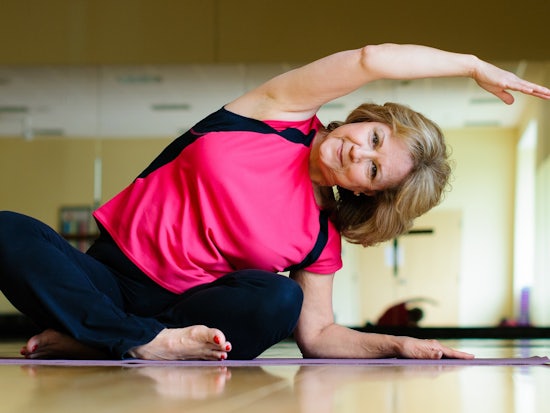What You Can Do to Improve Your Circulation
More people than ever are living sedentary lifestyles. Whether it be due to sitting for extended periods or lounging in front of the TV in our leisure time, fewer of us are spending less hours on our feet.

Do you know the risks of poor circulation? (Source: Shutterstock)
There are many dangers that come with a lack of physical activity – including poor circulatory health which can lead to many serious health conditions such as obesity, diabetes, heart disease and varicose veins.
Along with a lack of physical activity, other lifestyle choices that also affect circulatory health include: smoking cigarettes, regular alcohol intake and regular caffeine intake.
With this being said, those who regularly engage in physical activity can also suffer from poor circulation. Luckily, House Call Doctor General Practitioner, Dr Ryan Harvey, says there are some “simple steps” that you can integrate into everyday life which will help promote circulatory health.
Balanced Diet
“The key to overall health in general always comes back to maintaining a balanced diet,” he says.
“Proper nutrition helps promote cell growth, boost organ function and improve circulation.
“Try including as many nutrient-rich foods as possible in your diet, especially those containing antioxidants, vitamins and minerals which support optimal circulation.
“These can include: oranges, watermelon, garlic, sunflower seeds, salmon and dark chocolate.”
Regular Exercise
Like proper nutrition, Dr Harvey says regular exercise is an important aspect of achieving and maintaining wellbeing – and is the best defence against circulatory disease.
“Those who live an inactive lifestyle are more likely to develop blood clots, swelling and other circulatory health problems,” he explains.
“The negative health effects of our sedentary lifestyle have been coined ‘sitting disease’ – so, getting active each day is highly important to promote circulatory health.
“Just 30 minutes of walking daily can help improve our blood circulation, along with other moderate exercises including yoga, cycling or swimming.”
Posture
“It’s easy to fall into a bad habit with posture when slumped over a desk all day or constantly staring at a television screen – but, proper spinal alignment is important to circulatory health,” Dr Harvey explains.
“When we slouch or develop poor postural habits, we are more likely to compress blood vessels.
“This means our circulatory system can’t deliver essential nutrients to the body.
“When sitting, it is important to sit up straight with our feet placed firmly on the floor.”
Kicking the Caffeine Addiction
Caffeine products, such as coffee, can disrupt our circulatory system, and, as Dr Harvey explains, can increases our heart rate and raises our blood pressure, especially when consumed in excess.
He suggests drinking your recommended daily intake of water or herbal teas instead to help support circulatory health.
Remedial Massage
When conducted by a trained remedial therapist, Dr Harvey says massages can help stimulate healthy circulation.
“They are also a great stress reliever and can reduce hypertension throughout the body.
“So, go ahead and treat yourself to a massage… for the benefit of your circulatory health of course!”

Dr Ryan Harvey is a General Practitioner providing after-hours medical care to children and families. He is experienced in paediatrics and has travelled extensively, administering medical care to children in remote overseas communities. He now works with many families, administering acute care when unexpected medical situations arise overnight. Dr Harvey is one of the many doctors with House Call Doctor, an organisation that provides urgent after-hours medical care to residents in Queensland, when their regular GP is closed.










